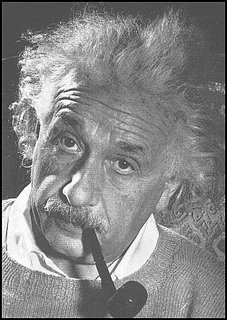The Fred Factor - My Review
This is a very short book whose premise is simple; be considerate and be willing to offer a helping hand without expecting anything more than feeling good about the fact that you want to be helpful.
Rather than telling you what this book is, I can tell you what it is not: this book isn't an epic tale; it isn't Faulkner or Hemingway; it isn't the recipe for curing all the world's ills; it certainly isn't a prescription on how to become a hero.
It is simply a collection of stories about admirable behaviors by garden-variety, every-day ordinary people who do simple yet extraordinary things.
Arguably, some of Mark Sanborn's stories are schmaltzy at times, and perhaps that is why some critics are prone to be dismissive of his message. I think it is a matter of how we view the world. Consequently, offering help without expectation of a tangible pay-off and how a person feels about being of service is simply reflective on a person's mindset. Optimists see it different from pessimists, and altruists see it different from their opposites. Despite whatever myriad antipodal interpretations of the world that could possibly exist, our perspectives help to define us as people. To be certain, there is an inherent reward to be had by each. It has to do with whether we are motivated intrinsically or extrinsically.
For people inclined to do something for others without any external rewards; this is book you will enjoy. For those of you who are expecting recognition payment or some other kind of remuneration; pass this one by.
Sanborn's story-telling carries in it a folksy, home-spun tone and it accomplishes its goal by pointing out that whether we decide to do something for someone has to do with who we are and where our philosophy about what is in it for us.
I have seen reviews of Fred Factor that, when they run in the negative, they do so because they consider that being a Fred-type person is little more than a set-up to be used and exploited. I do not share that conclusion; there is nothing wrong with being helpful or kind. This book really seems to be speaking to the notion that when people are motivated by intrinsic factors, they tend to be happier. This book is a touchstone and serves as a reminder for me that it costs nothing to be kind. Because of that, I am glad I read it.
On this anniversary of President' Kennedy's assassination, I am reminded of his January 20, 1961 inaugural address to the nation when he spoke the famous phrase, "...ask not what your country can do for you. Ask what you can do for your country..." and it strikes me how being of service was once considered as something to be admired. Even more compelling is how it seems to have gone out of vogue. How apropos to have finished reading this book and its underlying message today.
Rather than telling you what this book is, I can tell you what it is not: this book isn't an epic tale; it isn't Faulkner or Hemingway; it isn't the recipe for curing all the world's ills; it certainly isn't a prescription on how to become a hero.
It is simply a collection of stories about admirable behaviors by garden-variety, every-day ordinary people who do simple yet extraordinary things.
Arguably, some of Mark Sanborn's stories are schmaltzy at times, and perhaps that is why some critics are prone to be dismissive of his message. I think it is a matter of how we view the world. Consequently, offering help without expectation of a tangible pay-off and how a person feels about being of service is simply reflective on a person's mindset. Optimists see it different from pessimists, and altruists see it different from their opposites. Despite whatever myriad antipodal interpretations of the world that could possibly exist, our perspectives help to define us as people. To be certain, there is an inherent reward to be had by each. It has to do with whether we are motivated intrinsically or extrinsically.
For people inclined to do something for others without any external rewards; this is book you will enjoy. For those of you who are expecting recognition payment or some other kind of remuneration; pass this one by.
Sanborn's story-telling carries in it a folksy, home-spun tone and it accomplishes its goal by pointing out that whether we decide to do something for someone has to do with who we are and where our philosophy about what is in it for us.
I have seen reviews of Fred Factor that, when they run in the negative, they do so because they consider that being a Fred-type person is little more than a set-up to be used and exploited. I do not share that conclusion; there is nothing wrong with being helpful or kind. This book really seems to be speaking to the notion that when people are motivated by intrinsic factors, they tend to be happier. This book is a touchstone and serves as a reminder for me that it costs nothing to be kind. Because of that, I am glad I read it.
On this anniversary of President' Kennedy's assassination, I am reminded of his January 20, 1961 inaugural address to the nation when he spoke the famous phrase, "...ask not what your country can do for you. Ask what you can do for your country..." and it strikes me how being of service was once considered as something to be admired. Even more compelling is how it seems to have gone out of vogue. How apropos to have finished reading this book and its underlying message today.





